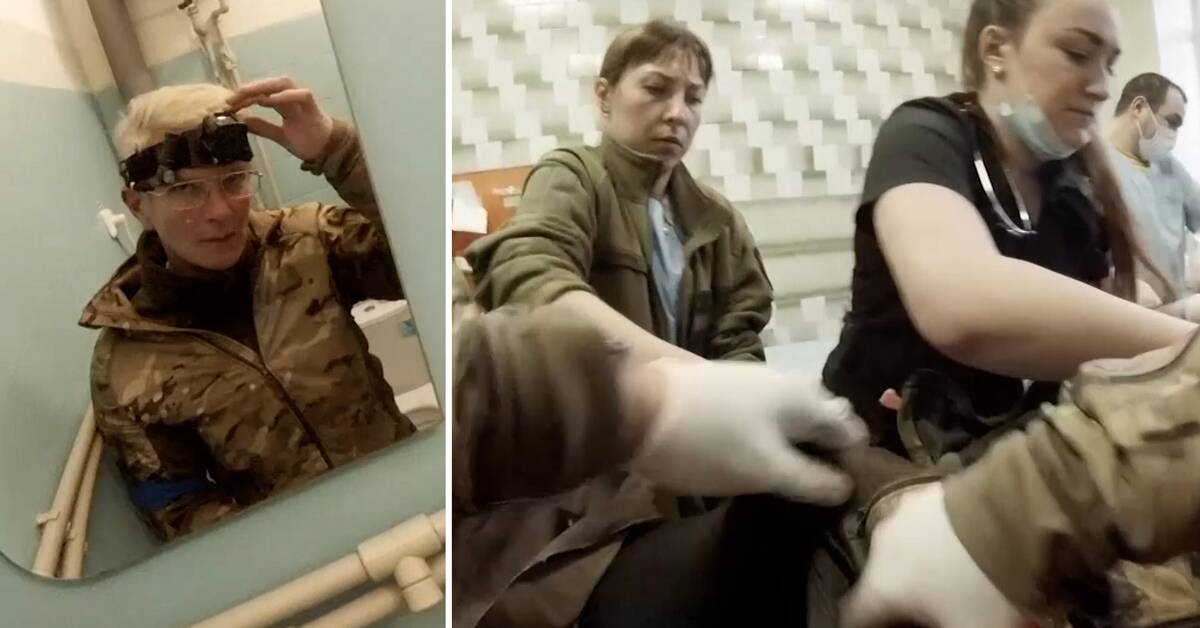The body camera was actually meant to be used for a Netflix documentary where several inspiring people would be the main characters.
But when Russia invaded, Julia Pojeskaja began filming her everyday life in Mariupol instead, reports AP.
One head is bandaged, one patient is moved from a stretcher to an operating table and another is helped into a helicopter.
The camera captures everything, even when children die right in front of her eyes.
- I hate this, she says after patting a boy on the forehead one last time.
Smuggled in tampon
On March 15, Pojeskaja handed over a memory card with 256 gigabytes of video material to the news agency AP's team on site in Ukraine.
The journalists hid the card in a tampon and managed to take it through 15 Russian roadside checkpoints before reaching Ukrainian-controlled territory.
The next day, Pojeskaja and her driver disappeared without a trace.
On March 21, according to the AP, she must have appeared again in a Russian news broadcast where her capture is announced.
She is accused of having links to the Azov Battalion and of trying to escape the city under a false identity.
In the same broadcast, she is said to have read out a statement in which she calls for an end to the fighting.
Since then, she has not been seen in public.
Trying to get her free
Under the banner #FreeTaira, a fight is now underway to get her free.
The initiators are the organization Invictus Games, which organizes sports events for the military and veterans.
Taira refers to the nickname by which she is better known in Ukraine.
The Ukrainian embassies in Albania, Finland and Belgium, among others, have shared the campaign.
The Ukrainian government has previously said that they have tried to bring Julia Pojeskaja home in a prisoner exchange.
But despite the television appearance, Russia denies having captured her.

